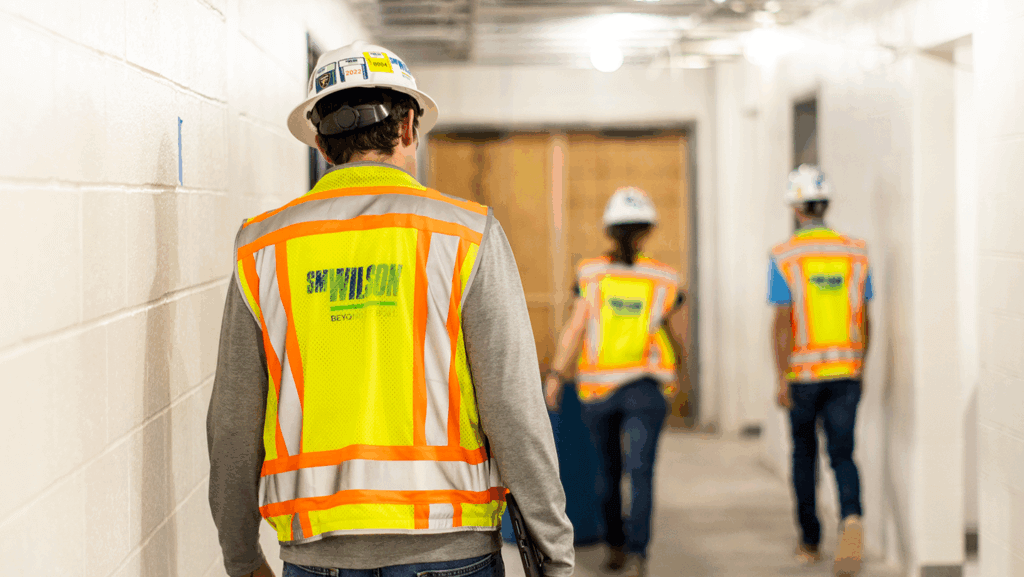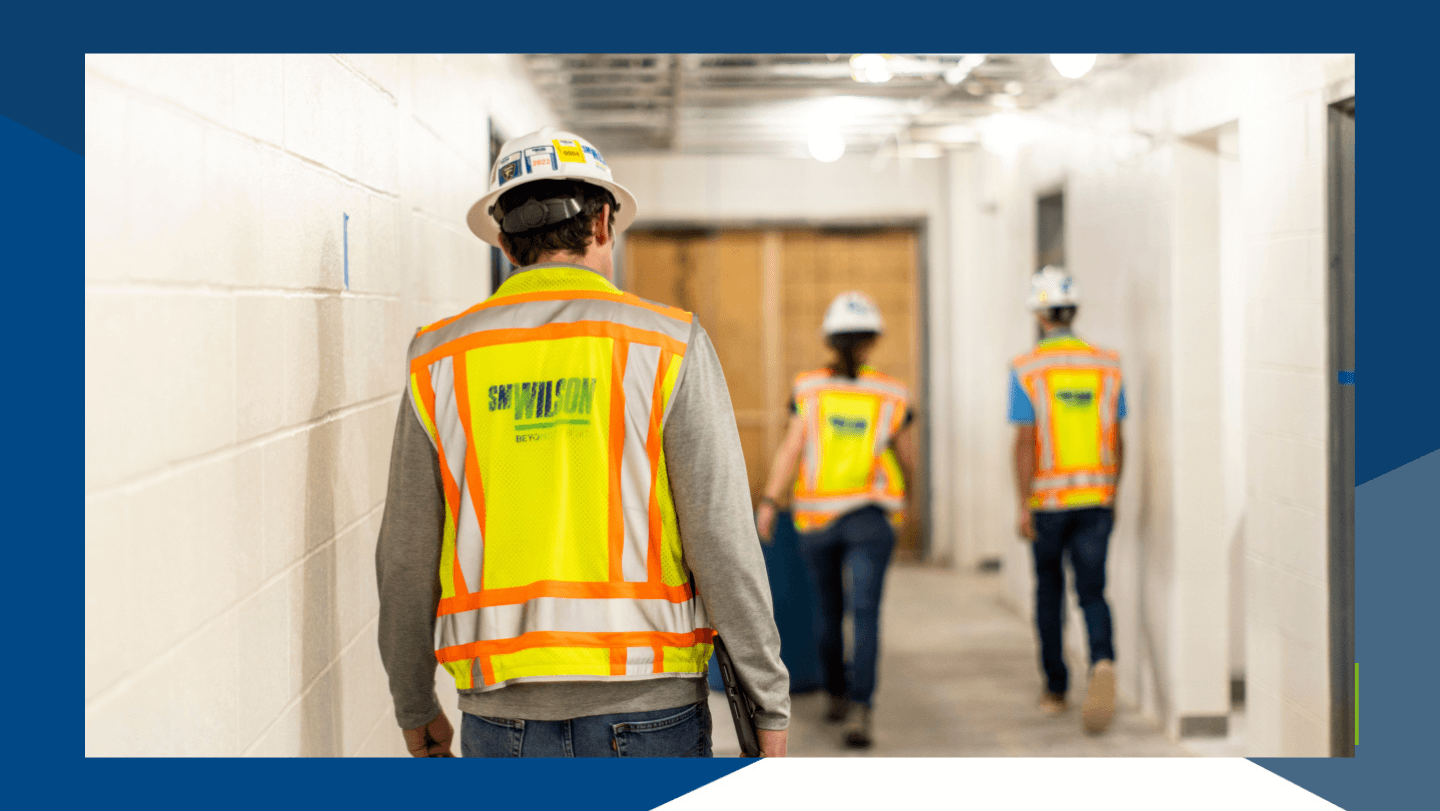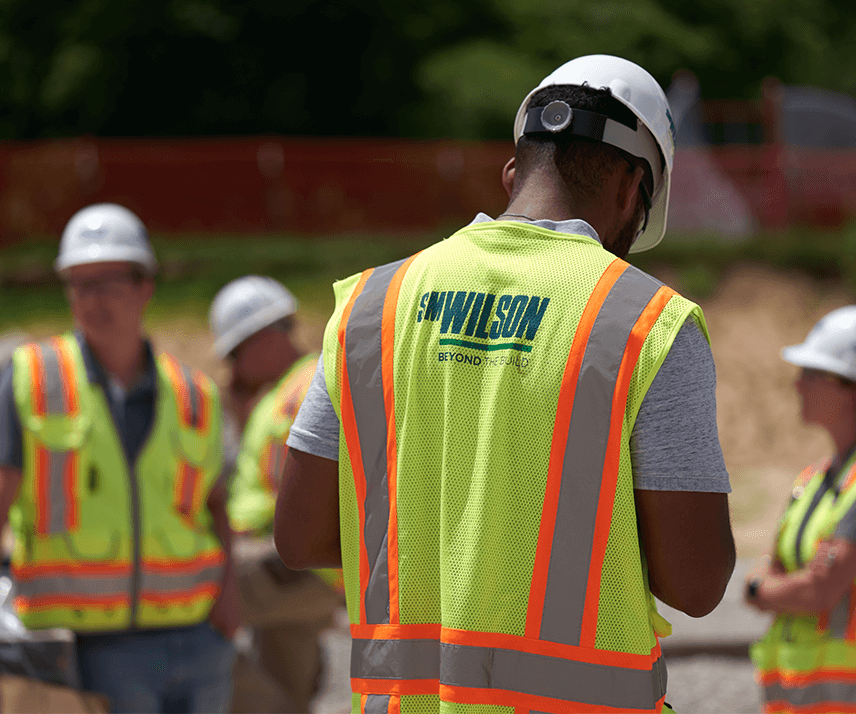
The construction industry has long prioritized physical safety—but behind hard hats and high-visibility vests lies a silent struggle that’s gone unaddressed for too long: mental health. Now, that silence is being broken through collective awareness and industry-wide efforts.
Jeremy Hutfles, Project Superintendent at S. M. Wilson, sees workers’ emotional weight firsthand. “Sometimes pride overshadows what people are going through. They don’t always express it, but they deal with real things—at home and on the job.”
Hutfles emphasized the safety implications of distraction and emotional overload. “When someone brings home problems to work or vice versa, it can create a dangerous situation. People don’t think clearly, and mistakes happen. That’s when we lose them—to burnout, poor decisions or worse.”
The Reality: Trends and Statistics
Construction workers face disproportionately high rates of anxiety, depression, substance use and suicide. The suicide rate in the industry is higher than the national average.
According to the Center for Construction Research and Training (CPWR), an arm of North America’s Building Trades Union, the number of workplace suicides among workers aged 22–38 increased by 72.7% in 2023. That same year, 15,900 construction workers aged 16–64 died from overdoses—99.3% of which occurred off the job site.
Preliminary 2024 CPWR data also show that nearly half of construction workers report symptoms of anxiety and depression—yet fewer than 5% seek professional help, compared to 22% of U.S. adults overall.
The causes run deep: long hours, physically taxing work, job insecurity and the isolating nature of project-based employment all take a toll. A deeply ingrained culture of toughness and stoicism often deters workers from seeking help.
Turning the Tide: Industry Initiatives on the Rise
Awareness is turning into action across the construction industry, which has included:
- Breaking the Stigma: Mental health is now recognized as vital to total worker safety. More open conversations are beginning to replace silence with understanding.
- Mental Health First Aid: Companies are training supervisors and crew members to recognize the signs of mental distress and offer meaningful support.
- Toolbox Talks & Awareness Campaigns: Mental health is increasingly a standard part of safety talks, with support from organizations like the Associated General Contractors of America, Construction Working Minds and the Construction Industry Alliance for Suicide Prevention.
- Employee Assistance Programs (EAPs): More firms offer confidential access to counseling, stress management resources and substance abuse support.
- Peer Support Networks: Peer Group Programs nurture workplace relationships that promote openness and a sense of belonging.
- Strategic Partnerships: Collaborations with groups like the American Foundation for Suicide Prevention (AFSP) and the National Alliance on Mental Illness (NAMI) are helping bring expert resources to construction sites.
- On-site Wellness Efforts: Some companies are implementing decompression zones, quiet spaces and on-site wellness coordinators to support mental balance.
Culture Shift: How We Can All Help
Creating a community ready to assist doesn’t happen by chance. It requires leadership, compassion, and everyday action through initiatives, including but not limited to:
- Foster Open Dialogue: Leadership must model vulnerability and encourage honest conversations about mental health.
- Stay Vigilant: Notice shifts in a coworker’s behavior—such as isolation, mood changes or decreased focus—and don’t hesitate to reach out.
- Listen Without Judgment: When someone shares their struggle, listen actively and with empathy.
- Make Resources Visible: Promote crisis lines, Employee Assistance Programs (EAPs) and other support services prominently across job sites.
- Challenge Stigma: Speak up against harmful language or attitudes that downplay mental health issues.
- Offer Tangible Help: Practical support can mean everything to someone struggling, whether covering a task or offering a ride home.
- Encourage Work-Life Balance: Prioritize rest, breaks and time away from the job to prevent burnout.
- Lead Authentically: Supervisors and company leaders who share their challenges can normalize help-seeking behavior.
- Advocate Industry-wide: Push for company and industry policies that embed mental health into safety protocols.
Hutfles always tries to make someone smile every day. “A smile a day keeps the anger away. You never know what someone is dealing with. We’ve got to make the job site a place where people feel safe, even if they can’t talk to those closest to them.”
“That’s why third-party programs are so important,” he added. “People need someone outside the situation whom they can open up to. We’ve got to keep looking ahead—that’s why your windshield is bigger than your rearview mirror. Focus forward.”
Building a Community of Awareness
As part of Construction Safety Week, the industry’s largest stand-down took place—encouraging job sites nationwide to pause and recommit to total worker safety, including mental wellness.
“While Construction Safety Week provides a great opportunity to bring awareness to these issues impacting our industry. It is ever so important that the conversation and effort continue after this week. As an industry, if we are to see impactful changes, we must take action year-round,” commented Brandon Anderson, Vice President of Safety with the Associated General Contractors of Missouri (AGCMO) & Co-Founder & Co-Chair of AGC of America National Task Force for Mental Health & Suicide Prevention.
S. M. Wilson’s Director of Safety, Tom Burns, agreed, “Construction Safety Week is critical to reinforce our commitment to sending everyone home physically and mentally safe. Ignoring the silent struggles of our workforce is no longer an option. Just as we plan for fall protection and hazard identification, we must proactively address mental well-being.”
Burns said that by having open conversations, providing accessible resources, and looking out for one another, a safe and supportive environment is created where every team member feels valued and knows it’s okay not to be okay.
Working Together to Help One Another
The culture is beginning to shift through continued awareness, education and compassion.
The AGC of America’s Culture of Care program offers resources and support to construction companies nationwide. By taking the pledge, team members commit to creating a work environment free from harassment, hazing and bullying. Fostering a diverse, safe, welcoming and inclusive culture ensures that every employee has the opportunity to reach their full potential. For more information, check out buildculture.org.
“AGC of America has created an industry-free resource hub to address Mental Health and Suicide Prevention. The hub offers resources ranging from information materials to monthly webinars, Toolbox Talks, and, most recently, comprehensive Mental Health training for industry leaders. This five-module program is free to all AGC of America members and allows you to work at your own pace to complete it,” Anderson said.
For more information, check out AGC’s Mental Health & Suicide Prevention Course
Check out Lean STL for more resources. Established as a Laborers’ Peer Support Network, it offers help and hope with resources for mental health and addiction. It is available 24/7 and 100% confidential.
For more information on available resources and how to obtain assistance or get involved, start with AGCMO and visit agcmo.org. You are not alone if you are in crisis, feeling overwhelmed, or unsure where to turn. Call or text the Suicide & Crisis Hotline at 988.
Be All In—Every Day
Mental health is not just a one-week focus or a checkbox on a safety form—it’s a shared responsibility. Every conversation, every kind gesture, every visible resource makes a difference.
Be the one who listens. Be the one who speaks up. Be the one who changes a life.
Let’s commit to building a culture that values mental wellness as much as physical safety. Being “all in” means caring for our people’s bodies and minds.
Start today. Start with your team. Start with yourself.


